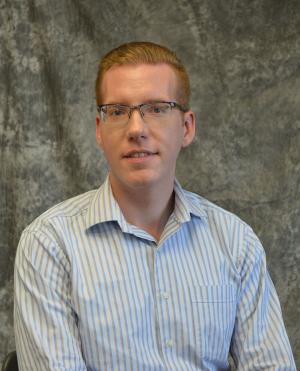Michael R. Marlo
Ph.D. 2007, University of Michigan
Phonology, tone, morphology, African linguistics, Bantu languages, the description of understudied languages
My primary research interests are in phonology and its interfaces with other components of grammar. I explore theoretical questions in these areas on the basis of original data and descriptive analyses of understudied African languages. I am especially interested in the tonal systems of Bantu languages, whose complex surface patterns show interactions of lexical, phonetic, phonological, morphological, and syntactic factors. Much of my research centers on a large-scale, on-going study of the tonal systems of Luyia, a Bantu language spoken in western Kenya and eastern Uganda with over twenty linguistic varieties.
University of Missouri Honors College, ASH Research Teams. Documenting Luyia together. 2016-2017. $22,000.
University of Missouri Research Board Grant. Documenting the rise of low tone in Great Lakes Bantu. 2016-2017. $19,850.
U.S. Fulbright Scholar Award, Kenya, Combatting language endangerment in East Africa through linguistic documentation. 2015-2016, $29,950.
National Science Foundation Award BCS-1355750. Collaborative Research: Structure and Tone in Luyia. Co-PI with Vicki Carstens (Southern Illinois University), Michael Diercks (Pomona College), Christopher Green (University of Maryland), David Odden (Ohio State University), and Mary Paster (Pomona College). 2014-2018, $343,479.
University of Missouri Campus Writing Program’s Faculty Development Award. Scientific Writing and Fieldwork Methodology in Linguistics. 2014-2015, $3,000.
Mizzou Alumni Association Richard Wallace Faculty Incentive Grant. Linguistic field work apprenticeships: continuing the study of the Igala language of Nigeria. $3,000. 2014.
National Science Foundation Award BCS-1227164. Doctoral Dissertation Research: Tone and variation in Idakho. Co-PI with Robert Botne (Indiana University) and Kristopher Ebarb (Indiana University). 2012-2013, $11,969.
National Endowment for the Humanities Summer Stipend Award FT-60326. Documenting the diversity of African tonal systems: Marachi and Wanga, two undescribed dialects of Luyia. 2012, $6,000.
National Science Foundation Award BCS-0545246. Doctoral Dissertation Research: The verbal tonology of four Luyia (Bantu) languages. Co-PI with Andries Coetzee (University of Michigan) and David Odden (Ohio State University). 2005-2006, $15,505.
Marlo, Michael R. 2015. Exceptional properties of the reflexive in Bantu languages. Nordic Journal of African Studies 24. 1-22.
Marlo, Michael R. 2015. On the number of object markers in Bantu languages. Journal of African Languages and Linguistics 36. 1-65.
Marlo, Michael R., Leonard Chacha Mwita & Mary Paster. 2015. Problems in Kuria H tone assignment. Natural Language and Linguistic Theory 33. 251-265.
Marlo, Michael R. 2014. Exceptional patterns of object marking in Bantu. Studies in African Linguistics 43. 85-123.
Ebarb, Kristopher J., Christopher R. Green & Michael R. Marlo. 2014. Luyia tone melodies. Africana Linguistica 20. 121-143.
Marlo, Michael R., Leonard Chacha Mwita & Mary Paster. 2014. Kuria tone melodies. Africana Linguistica 20. 277-294.
Marlo, Michael R. & David Odden. 2014. Bakweri tone melodies. Africana Linguistica 20. 295-312.
Marlo, Michael R. 2013. Verb tone in Bantu languages: micro-typological patterns and research methods. Africana Linguistica 19. 137-234.
Marlo, Michael R. 2009. Khayo verbal tonology. Africana Linguistica 15. 77-129.
Marlo, Michael R. 2008. Tura verbal tonology. Studies in African Linguistics 37. 153-243.
Botne, Robert, Hannington Ochwada & Michael R. Marlo. 2006. A Grammatical Sketch of the Lusaamia Verb. Köln: Rüdiger Köppe.
Marlo, Michael R. 2006. CV- root expansion in three Luyia languages. Linguistic Analysis 32. 293-326.
Marlo, Michael R. & Nicholas Pharris. 2004. Which Wič is which? Prefixes and suffixes in Klamath full-root reduplication. Linguistic Inquiry 35(4). 639-656.
